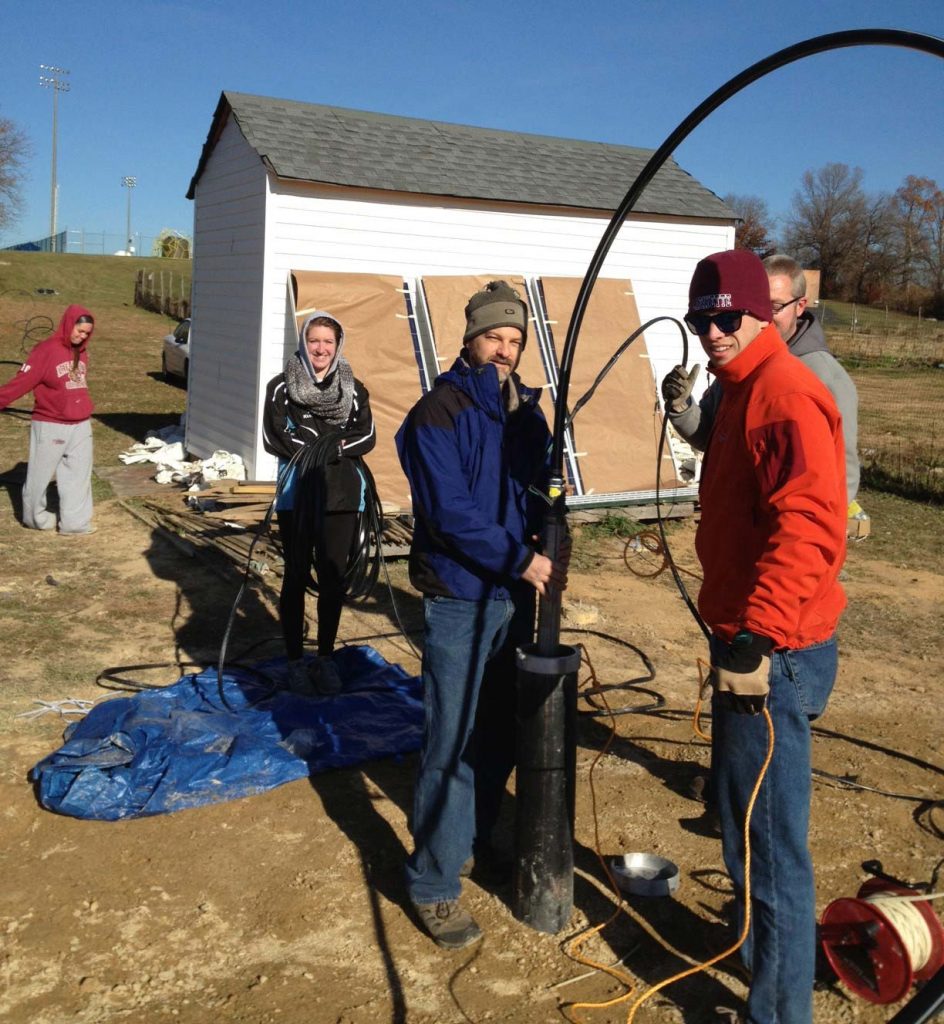Board of Trustees approves plan to lower carbon emissions and improve energy efficiency
Lafayette College has approved Climate Action Plan 2.0 (CAP), a major sustainability initiative that will guide the College on a path to achieve carbon neutrality by 2035.
The CAP was approved Feb. 23 in a unanimous vote by the College’s Board of Trustees. The plan outlines specific steps to be investigated and implemented over a three-phase timeline. Recommendations cover the areas of energy, waste, and transportation, with a focus on immediate, high-impact actions that can reduce carbon emissions and improve energy efficiency on campus.
“I am enormously proud that the College has strengthened its longstanding commitment to sustainability with the approval of the Climate Action Plan 2.0,” says President Alison Byerly. “Lafayette’s unique identity as a liberal arts college with a strong engineering program makes us well positioned to achieve this goal. I am particularly excited about the teaching and learning opportunities the plan provides. It furthers the College’s mission as an institution that prepares our students to confront the challenges they will face as citizens.”
The CAP identifies a suite of strategies to reduce the campus’ carbon footprint, including:
- increasing energy efficiency and conservation;
- establishing a “green revolving fund” to provide funding for projects that can reduce the College’s environmental impact and operational costs;
- transforming the campus energy infrastructure to reduce heating and electricity energy consumption;
- and investing in renewable energy options, including ones at Metzgar Fields Athletic Complex, where there is a near-term opportunity to achieve on-site carbon neutrality.

Professor David Brandes (center) tests and installs a solar-powered well water system for irrigation at LaFarm with students.
Lafayette’s commitment to environmental stewardship is not new. In 2008, under President Daniel Weiss, Lafayette joined the American College and University Presidents’ Climate Commitment, which initiated the College’s commitment to eventually achieve carbon neutrality. The College has agreed to conduct an annual inventory of its greenhouse gas emissions and reevaluate its CAP every five years. Since its inaugural CAP, Lafayette has reduced emissions by more than 20 percent—even as the College has expanded enrollment, programming, and building spaces. In 2017, Byerly signed the “We’re Still In” pledge, along with over 3,500 colleges, universities, governors, mayors, and business leaders, expressing a commitment to meeting the goals of the Paris Climate Agreement. The College also has enhanced its curriculum by creating degree programs in environmental studies and environmental science and positioning sustainability as a core theme in classrooms across campus.
Curricular integration is an essential element of the CAP. Opportunities for student and faculty engagement are at the core of its recommendations.
“The CAP is designed to leverage the strengths of the College—rigorous academics, experiential learning opportunities, collaborative work—and help make environmental stewardship a pervasive part of our campus culture by having our campus function as a living laboratory,” says Kira Lawrence, John H. Markle Professor of Geology and chair of the Department of Geology and Environmental Geosciences. “Through climate action planning, we aspire to provide transformational learning experiences for our students that help teach them to live within environmental bounds.”

2 Comments
I work with Agnes Scott College to achieve these same goals. They have already established a green revolving fund, implemented energy conservation measures, and installed renewable energy on campus. I would be more than happy to offer advice from my experience. Please feel free to contact me.
-David Waggoner ’91
Great! I’m proud of my school.
—Peter Hanson ‘61
Comments are closed.